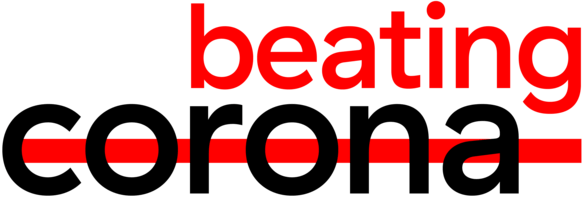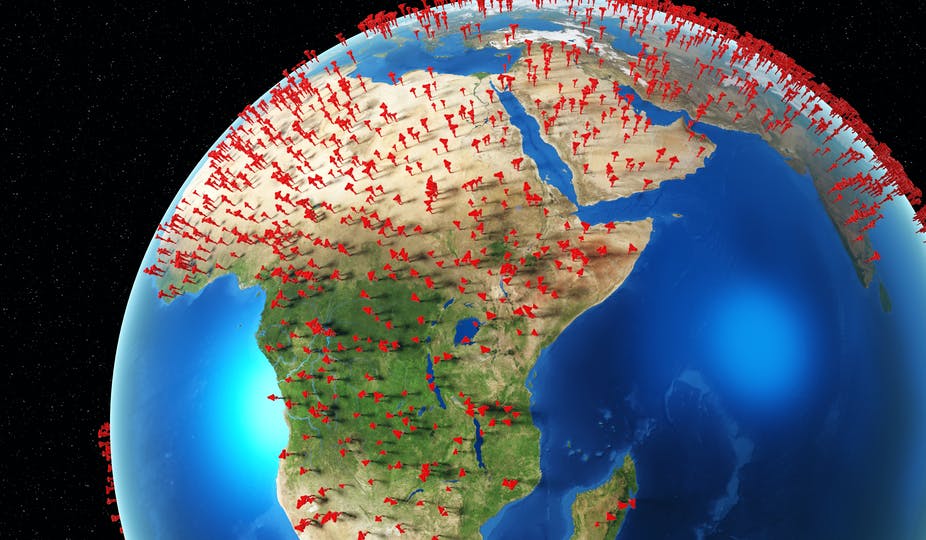What Nigeria needs to do to curb Covid-19
In this piece, Omoleye traces the mechanics of handling an epidemic within the Nigerian context.
by Omoleye Omoruyi
“We are determined to be more aggressive in enforcing the measures aimed at containing the spread of the virus,” Minister of Information, Lai Mohammed (March 27, 2020)
On December 31, 2019, China alerted the World Health Organisation (WHO) to several cases of unusual pneumonia in Wuhan, a port city of 11 million people in the central Hubei province. WHO said later on January 23, 2020, that the outbreak did not yet constitute a public emergency of international concern and there was “no evidence” of the virus spreading between humans outside of China – even when deaths were already recorded in and outside China. They waited until January 30, 2020, before they declared the coronavirus a global emergency as the death toll in China jumped to 170, with 7,711 cases reported in the country, where the virus had spread to all 31 provinces.
It spread as quickly as possible in Italy and Japan and the death toll kept increasing – daily. Africa was yet free of the virus, and scientists questioned why. “Were black-skinned people immune to the virus?” That idea became history when black-skinned people began to die and the virus ‘arrived’ in Africa.
Nigeria’s Federal Government (FG) established a coronavirus preparedness group on January 31, 2020, to prevent the virus from getting into the country. The same day, WHO listed Nigeria as one of the high-risk countries for the spread of the virus. Before then, on January 28, 2020, the FG assured citizens of its readiness to strengthen surveillance at five international airports – Enugu, Lagos, Rivers, Kano, and the FCT. But somehow, an Italian man got into the country almost 30 days later on February 25, 2020, through the Muritala Mohammed International Airport (MMIA) in Lagos, fell ill on 26 and was only discovered to be positive on February 27.
Nigeria’s health minister, Osagie Ehanire, told reporters in Abuja that “we have already started working to identify all the contacts of the patient since he entered Nigeria. We have continued to beef our own security. The level of preparedness continues to improve every day.” However, someone who had contact with the Italian was recorded to have had the virus in Ekiti.
The third case recorded on March 17, 2020, was also contracted by a returnee from the United Kingdom (UK). And as at 11:55 pm, WAT, March 27, 2020, the number of cases had risen to 81 – most of them returnees from other countries.
All of these beg this question; how prepared are we if most of the cases are as a result of laxity at the borders? Do we remember how former vice president, Atiku Abubakar’s son came in and was allowed to move around freely?
Just like the land border closure to imports and exports, Nigerians literally begged the FG to close all entries and exits of the country, so as to avoid more infected people coming in. It wasn’t until March 18, 2020, that Nigeria made a move and banned entry from the UK, US, South Korea, Switzerland, Germany, France, Italy, China, Spain, Netherlands, Norway, Japan, and Iran. The ban was extended on March 20 to include Sweden and Austria. On March 21, Nigeria closed Enugu, Port-Harcourt, and Kano airports. And on March 26, Nigeria finally closed all its borders. But, much damage had been done.
Many Nigerians claim that the borders remained open so ‘a certain class of Nigerians would not remain stranded abroad. But there’s no confirmation to that. Maybe politicking will answer that.
It’s obvious that the spread of the coronavirus might not stop in a flash, especially as literally no one knows exactly how many people are still walking around the country with the virus – we only have ‘confirmed cases’. And, while state governments have put measures in place (including closing schools, markets, churches, mosques, and public gatherings) to stop its spread, there’s yet more to be done.
The concern with locking down the country (a totally necessary arrangement) lies with the people who won’t be able to feed themselves when they do not go out to sell something every day. On a larger scale, it lays with a Nigerian economy that is already fragile.
Nigeria, like most countries, will be hit on two fronts. Directly as a result of cases in the country, and indirectly, due to our closeness with – badly hit China, our number one infrastructure financier and trading partner, plus our reliance on global oil prices – Stears Business (March 2020)
Apart from the adverse effect of the drop in oil prices, the Nigerian Stock Exchange (NSE) lost ₦2.3 trillion in the three weeks after Nigeria’s first case – an 18% drop. To sum it up, a recession seems very likely – where some Nigerians believe the country has not come out of recession since 2016.
Nigeria was declared the largest economy in Africa after South Africa’s economy went into recession, but there is hardly any Nigerian who believes the statistics because the common man is ‘not feeling all that economic jargons’.
Interestingly, Nigeria improved its ranking on the latest World Bank ease of doing business index, but some analysts say that doesn’t necessarily mean an improved economy — and that the country still has anti-business policies. The country now ranks 131 on the World Bank’s Doing Business 2020 index moving up 15 places from its 2019 spot and has been tagged as one of the most improved economies in the world for running a business.
What did Nigerians have to say about this?
This is the time for the Economic Advisory Team constituted by Nigeria’s president, Muhammadu Buhari to sharpen its axes and ensure Nigeria’s economy does not fall completely. After all, it is a star-studded team and they won’t want to lose the faith Nigeria has in them.
What else?
Nigeria has an epileptic health system (not news), and with there being an existing uncertainty of Nigeria successfully fighting the spread of COVID-19, the Lagos State Government led by Babajide Sanwo-Olu proved otherwise. The same center used for the obliteration of the deadly disease, Ebola, during the administration of former governor (turned minister) Babatunde Fashola was re-opened and restructured to meet its new requirements. The Governor has been giving updates since the first case and we all understand that he is working hard to stop the spread of the pandemic.
However, the question remains; is Nigeria truly ready to fight the coronavirus if it turns out to spread to as much as 5,000 people (although religious extremists will say ‘God forbid!’). State governments, who have opened isolation/treatment centers across the country will say yes to that question. And with the support of private individuals and companies, the answer will remain positive. But what happens to the question of why the cases keep increasing?
It did not take too long in Italy before people realized that government-imposed rules were not going to work unless the citizenry made individual efforts; which will, in turn, become a collective effort. We all know how Nigerians have little or no trust for the leadership and asking them to stay at home will mean different things.
But a total lockdown is pertinent, and the lockdown of the country needs to include internal transportation across the country. People (possibly infected) are still traveling in and out of concentrated cities like Lagos and Abuja. Do we have a discussion on which comes first between wealth and health? Most likely necessary, because many Nigerians still do not believe that there’s a pandemic in town that’s likely to kill anyone who is infected.
Absolutely no one can claim to be able to control a virus that spreads as quickly as it deems fit. On average, one sick person spreads it to five other people. Nigeria has gone from one case of the Italian who has turned negative to 81 cases and probably counting – as earlier mentioned: we don’t know who else is out there with the virus.
So, Nigeria needs to act immediately. Awareness is a big deal now and, while we struggle to fight a pandemic that’s likely to have even more devastating effects than imagined, we can have less of the economy destroyed when we pay particular attention to enlightening people on preventive measures. And, one of such is social distancing. Imagine people still planning society parties this period.
Nigerians are sincerely tired of asking for better health systems! All we have now are gloriously unequipped government hospitals and over-priced private hospitals.
“I can’t get a bed for my mom? How are you even telling me this? She is very ill and cannot be taken home. This is serious!”
“Aunty, that’s how it is. All the beds are taken and unless one patient is discharged, there’s no bed for your mom. If you can wait somewhere, that man over there (pointing to an old man that’s reeling on his bed) will be discharged tomorrow. The doctor would not even attend to you because he knows about the unavailability of beds,” the nurse replies as she walks out of the patient’s presence.
If her mom eventually gets admitted, the conversation at the pharmacy will probably increase the degree of the mental stress the lady is already experiencing – she too becomes ill without knowing. It is a cycle.
Picking from the lines of an undercover investigation in two of Nigeria’s ‘most prestigious’ general hospitals… “Ebuka Ogbonnaya and his 28-year-old wife, Blessing, were back on the wooden bench. This time, it was with severe depression. There was no bed still, but some patients who met him there were making it into the reception.
“A light-skinned, slender lady was the triage doctor on duty that day and she had begun taking trips from the reception to the car park, singing the no-bed-space rhythm. By then, Ebuka could not conceal his fears any longer. He broke into tears and sobbed carelessly, although muffling his tone.”
That’s just an icebreaker.
The rot in Nigeria’s health system is caused by a now legal system of organized corruption – starting from the top to the cleaner. Everyone is a part of it. And so, when reforms are seriously intended, it will take years of proper reorientation to get people to understand that NIGERIANS DESIRE BETTER HEALTHCARE.
In 2018, Nigeria Health Watch in collaboration with NOIPolls conducted a survey to find out the voting priorities of Nigerians in the run-up to the 2019 elections. The results revealed that 86% of respondents polled mentioned health as one of the issues that mattered the most to them. This suggests that the average Nigerian considers health to be a priority yet it was not a top debate topic in the campaigns by all the parties at the (recently) concluded election. NHW (2019).
Two times we have come across country-wide life-threatening health issues – Ebola, Lassa Fever. Malaria has become part of our lives; unfortunately. And, kills more than 50,000 Nigerians annually. Oh! That’s more than two, especially when we also consider the diarrheal disease, etc. Now, COVID-19.
This only tells us to do better with our healthcare.
Coupled with better healthcare systems, there has to be constant two-way communication between the citizenry and the leaders. It has got to a stage where Nigerians believe that once a statement comes from the president or the governor debunking a particular accusation, that accusation is probably true. Trust is but a faded glow in the eyes of the average Nigerian.
Leaders need to rebuild that trust through effective communication. Let’s continue this conversation.
Note: Severe acute respiratory syndrome coronavirus 2 (SARS-CoV-2), previously known by the provisional name 2019 coronavirus (2019-nCoV), is a positive-sense single-stranded RNA virus. It is contagious in humans and is the cause of the ongoing pandemic of coronavirus disease 2019 (COVID-19).
–
Omoleye Omoruyi is a journalist and writer. He is a staff-writer of YAfrica.





